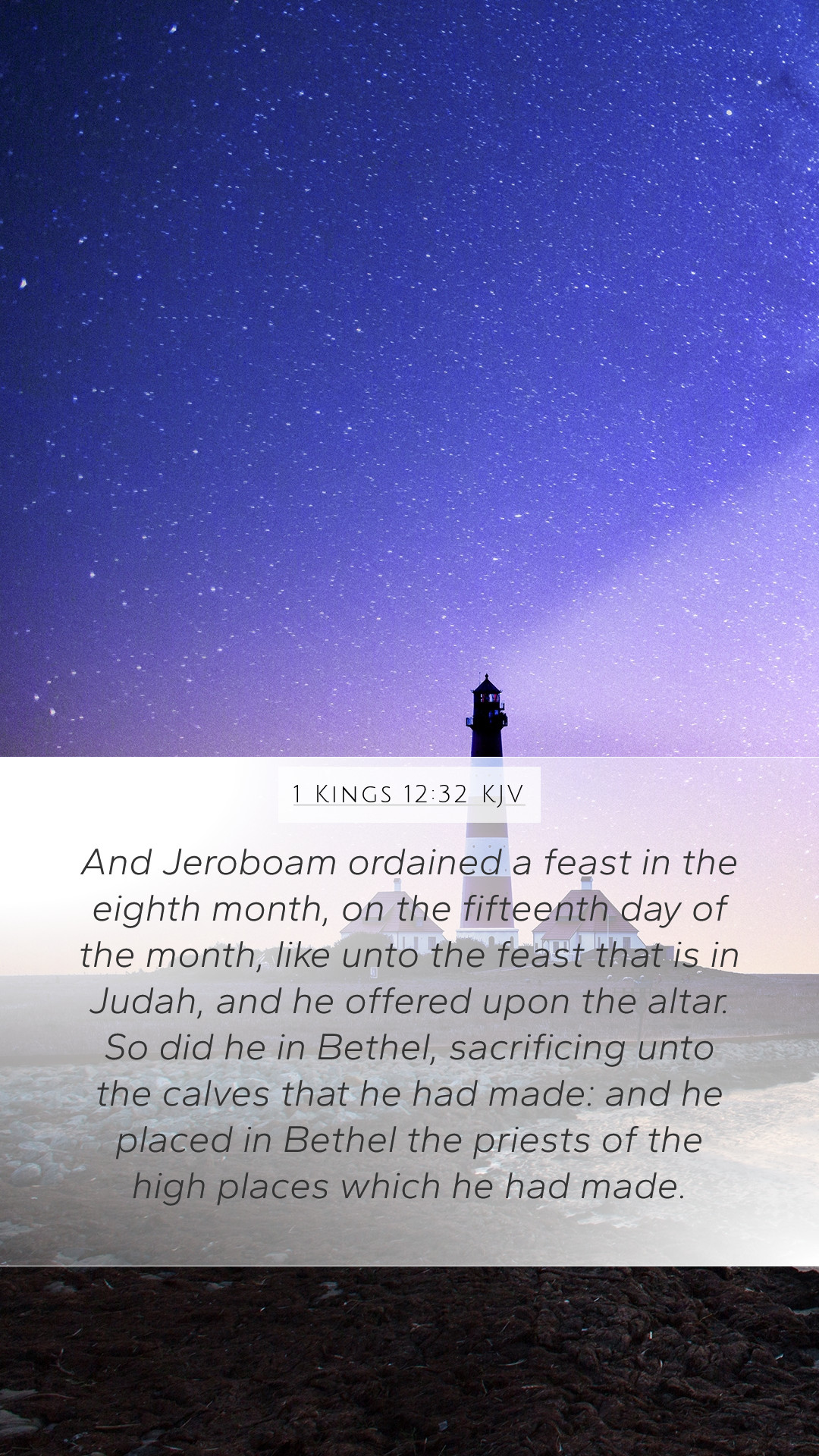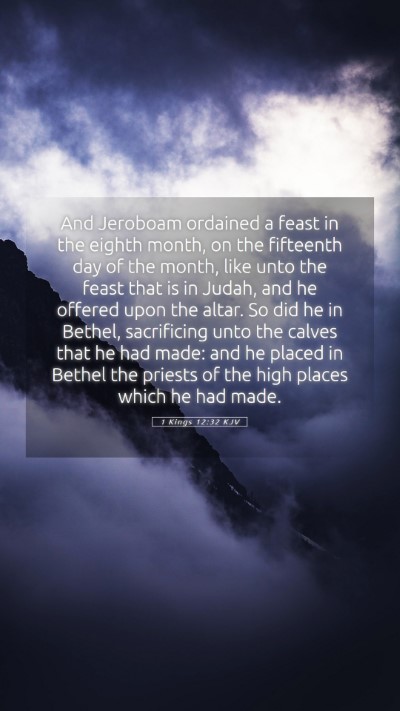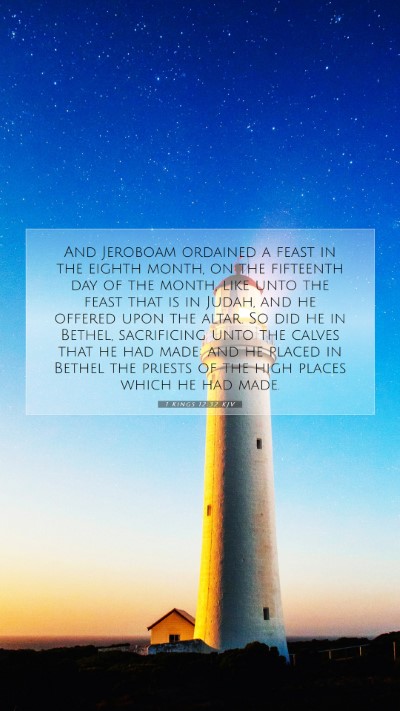Bible Verse Commentary: 1 Kings 12:32
Verse Text: "And Jeroboam ordained a feast in the eighth month, on the fifteenth day of the month, like unto the feast that is in Judah, and he offered upon the altar. So did he in Bethel, sacrificing unto the calves that he had made: and he placed in Bethel the priests of the high places which he had made."
Understanding Scripture: 1 Kings 12:32
This verse narrates a pivotal moment in the history of Israel where Jeroboam, the newly appointed king over the northern tribes, attempts to consolidate his power and alter the religious practices of Israel. It is essential to explore the layers of meaning embedded in this scripture through various lenses, including historical context, theological significance, and practical applications for contemporary readers.
Bible Verse Meanings:
- Religious Innovation: Jeroboam's action reflects his desire to forge a new identity for Israel that distinguished it from Judah. By instituting a feast similar to that of the Jewish calendar, he manufactured a parallel religious observance to retain loyalty.
- Idolatry and Apostasy: The mention of the golden calves illustrates Jeroboam’s departure from the worship of Yahweh, leading the people into idolatry. This act symbolizes the broader theme of rebellion against God which permeates the narratives of Kings.
- Political Strategy: Jeroboam's establishment of new priests and altars demonstrates his focus on political stability. He replaced the legitimate priesthood in Jerusalem to maintain control over the worship practices of his subjects.
Bible Verse Interpretations:
Matt Henry emphasizes that Jeroboam acted out of fear. His decision was driven by the realization that the people might return to Jerusalem, leading to his downfall. This reflects human nature to cling to power, even at the expense of divine principles.
Albert Barnes focuses on the implications of Jeroboam’s actions as a contrasting point to true worship. His counterfeit religious observances serve as a warning against embracing practices that lack divine approval, shedding light on the danger of creating a false sense of security in worship.
Adam Clarke explores the consequences of Jeroboam's choices, noting that these actions led to the eventual downfall of the northern kingdom. The establishment of alternative worship led to numerous future generations wandering further from the covenant established with God.
In-depth Bible Verse Analysis:
Analyzing the historical context reveals that Jeroboam’s actions were significant not just for his reign, but for the entire trajectory of Israel’s history. By creating a new religious system, Jeroboam set a pattern of disobedience that would plague Israel for years to come.
Application of 1 Kings 12:32 to Daily Life:
For modern readers, the verse serves as a cautionary tale about the importance of genuine worship and adherence to God's commandments. It encourages believers to examine their religious practices and ensure they align with Biblical teachings rather than merely serving personal or societal agendas.
Bible Cross References:
- Exodus 32:8 - The worship of the golden calf.
- 1 Kings 13:33-34 - The consequences of Jeroboam's idolatry.
- 2 Kings 17:21-23 - The downfall of Israel due to disobedience.
Conclusion
1 Kings 12:32 illustrates critical lessons about leadership, worship, and faithfulness to God's commandments. The verse serves not only as a historical account but also as a rich source for Bible study insights and practical Bible study lessons that resonate throughout generations. Engaging in online Bible study or Bible study groups can further enhance understanding of such complex passages, ensuring one's faith journey remains rooted in scripture.


